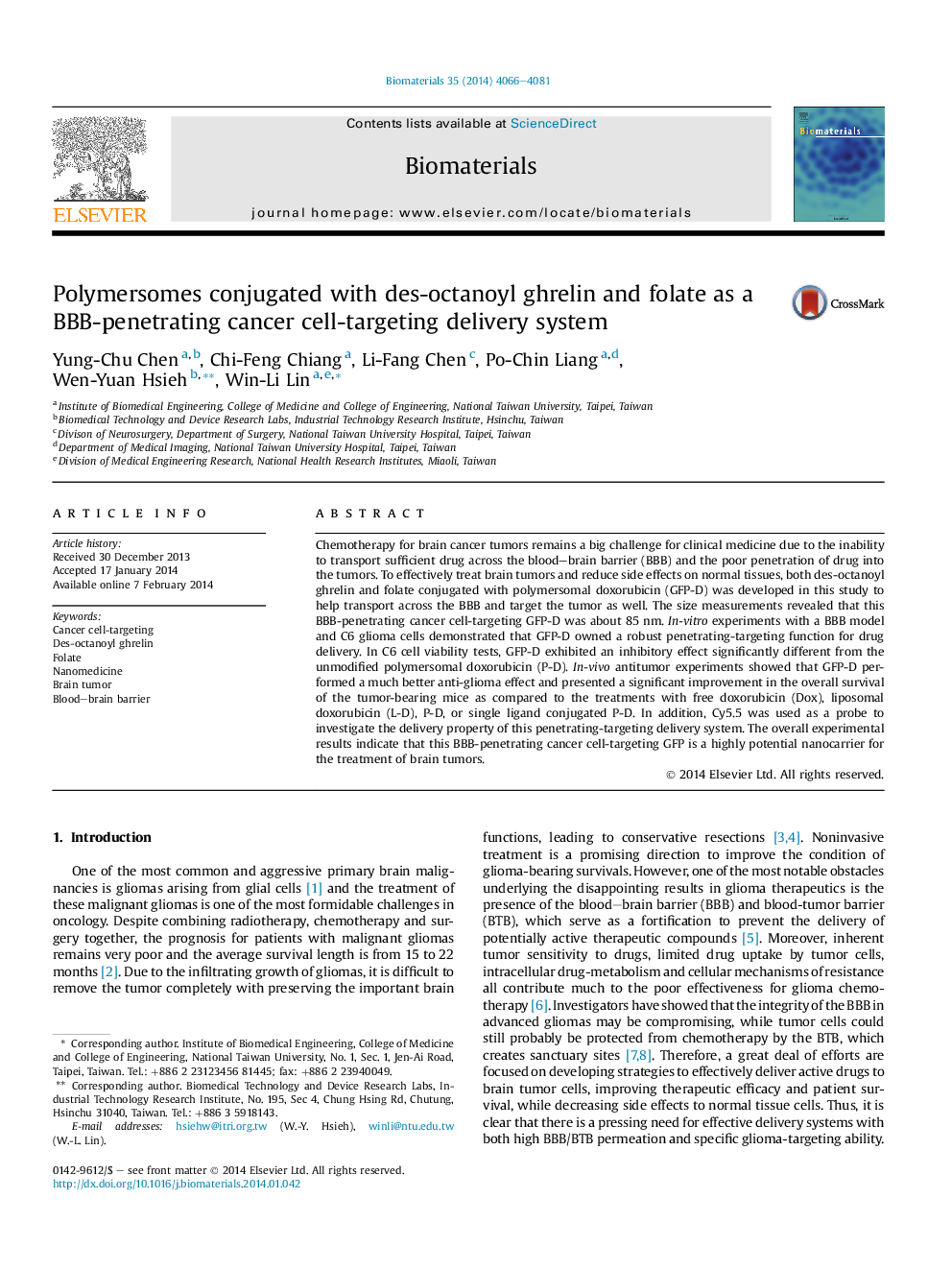| Article ID | Journal | Published Year | Pages | File Type |
|---|---|---|---|---|
| 10228045 | Biomaterials | 2014 | 16 Pages |
Abstract
Chemotherapy for brain cancer tumors remains a big challenge for clinical medicine due to the inability to transport sufficient drug across the blood-brain barrier (BBB) and the poor penetration of drug into the tumors. To effectively treat brain tumors and reduce side effects on normal tissues, both des-octanoyl ghrelin and folate conjugated with polymersomal doxorubicin (GFP-D) was developed in this study to help transport across the BBB and target the tumor as well. The size measurements revealed that this BBB-penetrating cancer cell-targeting GFP-D was about 85Â nm. In-vitro experiments with a BBB model and C6 glioma cells demonstrated that GFP-D owned a robust penetrating-targeting function for drug delivery. In C6 cell viability tests, GFP-D exhibited an inhibitory effect significantly different from the unmodified polymersomal doxorubicin (P-D). In-vivo antitumor experiments showed that GFP-D performed a much better anti-glioma effect and presented a significant improvement in the overall survival of the tumor-bearing mice as compared to the treatments with free doxorubicin (Dox), liposomal doxorubicin (L-D), P-D, or single ligand conjugated P-D. In addition, Cy5.5 was used as a probe to investigate the delivery property of this penetrating-targeting delivery system. The overall experimental results indicate that this BBB-penetrating cancer cell-targeting GFP is a highly potential nanocarrier for the treatment of brain tumors.
Related Topics
Physical Sciences and Engineering
Chemical Engineering
Bioengineering
Authors
Yung-Chu Chen, Chi-Feng Chiang, Li-Fang Chen, Po-Chin Liang, Wen-Yuan Hsieh, Win-Li Lin,
